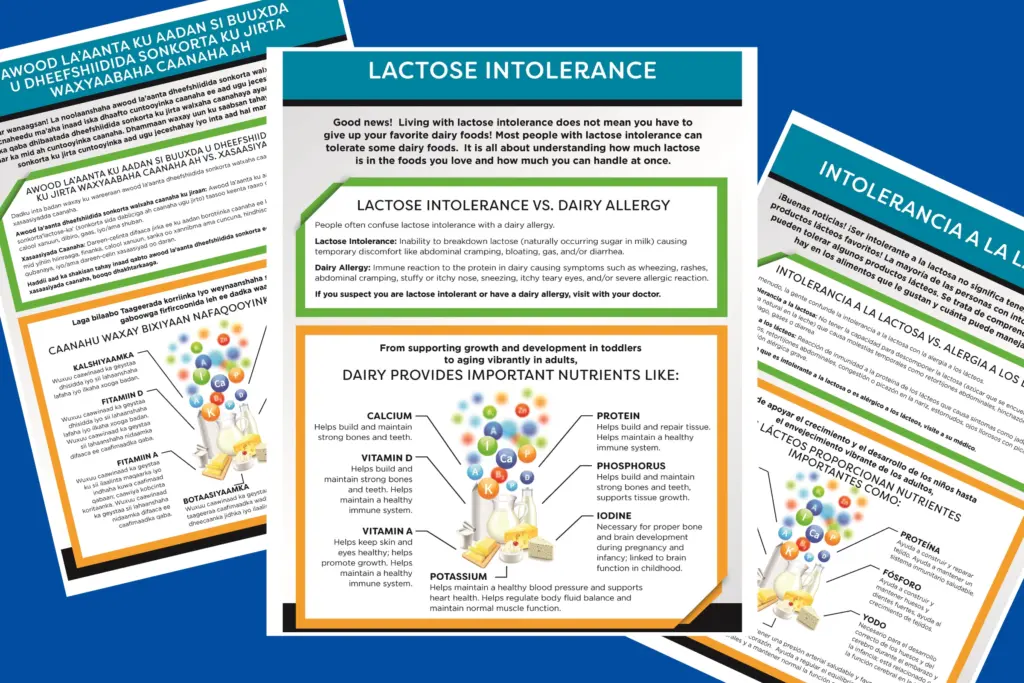Midwest Dairy works with and through a large variety of wellness thought leaders by providing research-based resources, information, and intelligence to these healthcare systems. By partnering with credible health, wellness, and nutrition experts who can positively reinforce dairy’s message, we ensure that dairy’s sustainable nutrition story reaches consumers who need more information.
Providing thought leaders with nutrition resources in Missouri
Midwest Dairy partnered with the healthcare professionals at Betty Jean Kerr People’s Health Centers (BJKPHC), a nonprofit organization that provides healthcare services to underserved communities in the St. Louis, Missouri, area. The health centers offer a wide range of medical services, focused on serving individuals and families with limited access to healthcare, including those without insurance or Medicaid coverage.
BJKPHC participates in the Special Supplemental Nutrition Program for Women, Infants, and Children (WIC), currently serving over 4,000 monthly clients. Midwest Dairy was recently asked to provide nutrition education resources to the healthcare professionals who serve this vulnerable population. These resources will allow healthcare providers to help their clients navigate pediatric challenges such as picky eating, managing lactose intolerance, and transitioning from whole milk to 2 percent milk. The WIC nutrition education resources at Midwest Dairy aim to make the connection between dairy goodness, great taste, and health. Additionally, these resources are translated into multiple languages to ensure that the information reaches the diverse populations represented at WIC.
Know the difference: lactose intolerance versus milk allergy
Dr. Teresa Jeffers of Four Seasons Allergy in Little Rock, Arkansas, is often asked about the difference between lactose intolerance and a milk allergy. According to the American College of Allergy, Asthma, & Immunology, only 2 to 3 percent of children under three years of age are allergic to milk, and about 80 percent of those children will outgrow their milk allergy before they are 16.
To educate her patients and families about the difference between lactose intolerance and a milk allergy, Dr. Jeffers added educational materials in her waiting room provided by Midwest Dairy. These resources will help prevent patients from unnecessarily avoiding dairy and missing out on key nutrients, while still noting the importance of discussing these issues with a doctor. Even a simple flyer in the waiting room can remind patients to bring up their concerns with their health provider.
University of Minnesota study examines cows’ milk compared to alternatives
A new study analyzed the nutritional content of more than 200 plant-based alternatives sold in the U.S. vs. cow’s milk and provided evidence that “many plant-based milk alternatives are not nutritionally equivalent to cow’s milk.” This unpublished study was presented at the 2023 Annual Meeting of the American Society for Nutrition led by Abigail Johnson, Ph.D., RD, Assistant Professor, University of Minnesota School of Public Health and Associate Director, Nutrition Coordinating Center, and was recently picked up by outlets such as Newsweek.
According to Dr. Abigail Johnson…
“Our findings point to a need to ensure that consumers are aware that many plant-based milk alternative products in the marketplace today are not nutritionally equivalent to cow’s milk,” Johnson said. “Product labeling requirements and dietary guidance to the public are among the approaches that may help alert and educate consumers.”
The study is proving important for dairy and amplifies checkoff’s efforts when telling the sustainable nutrition story of dairy to thought leaders and consumers alike. It also allows Midwest Dairy wellness staff to develop another dairy-friendly thought leader relationship in the School of Public Health.
As of late July, the study had generated 239 total mentions across online news and 596 total mentions across X (formerly Twitter), driving 3.5K engagements, respectively.
